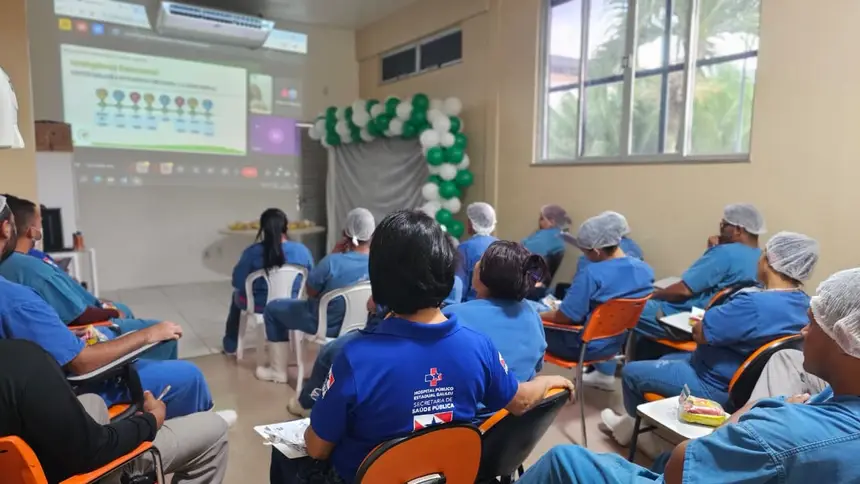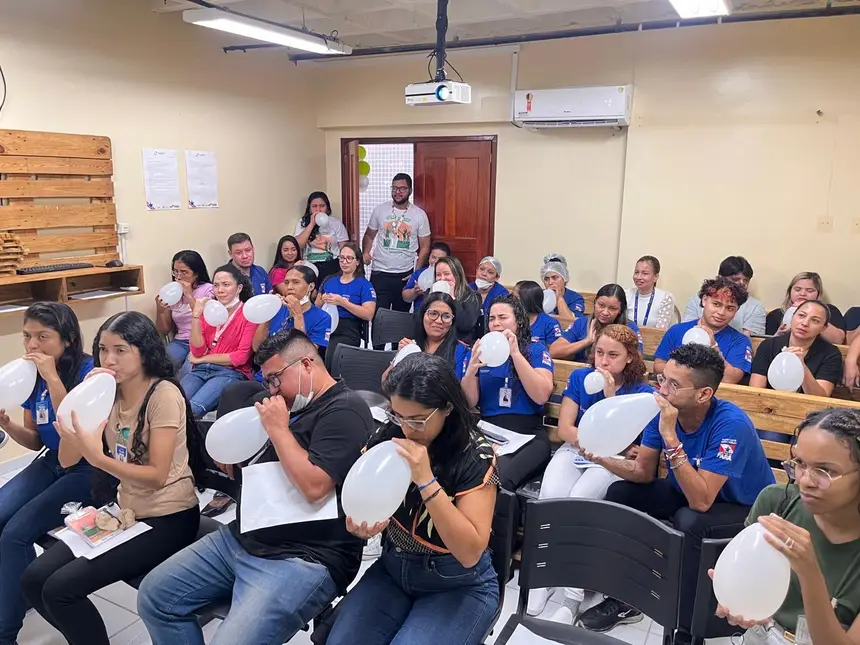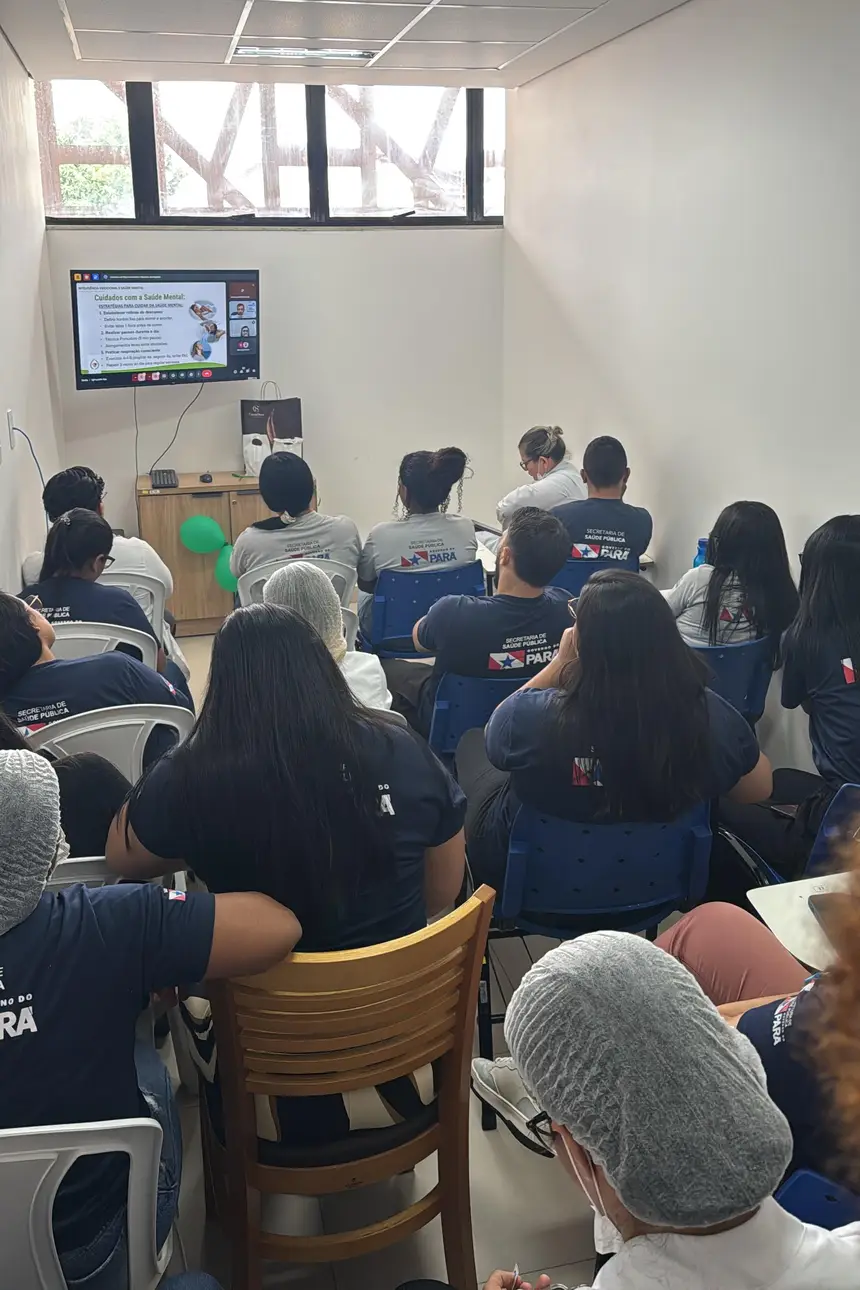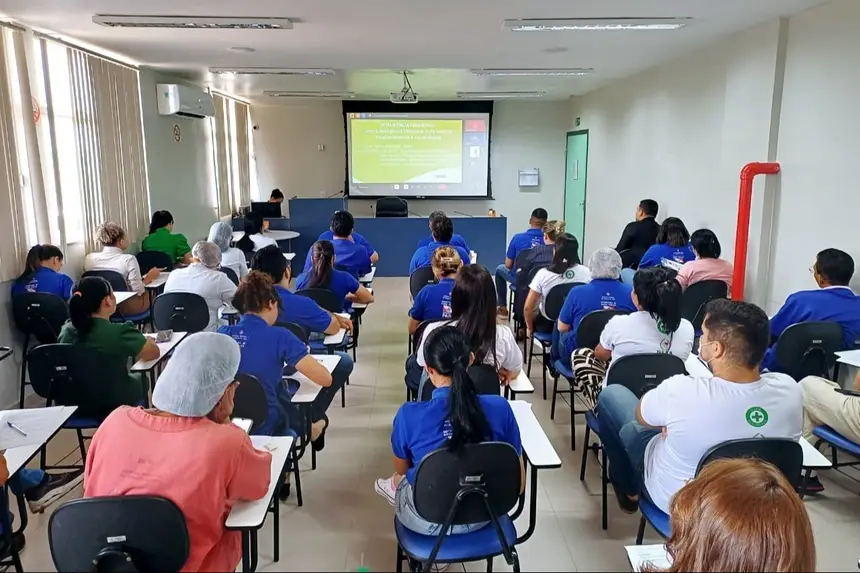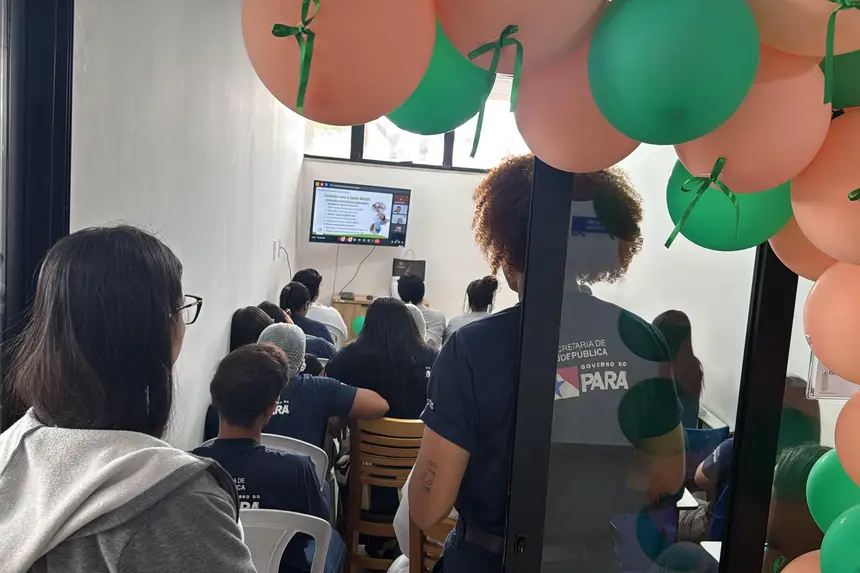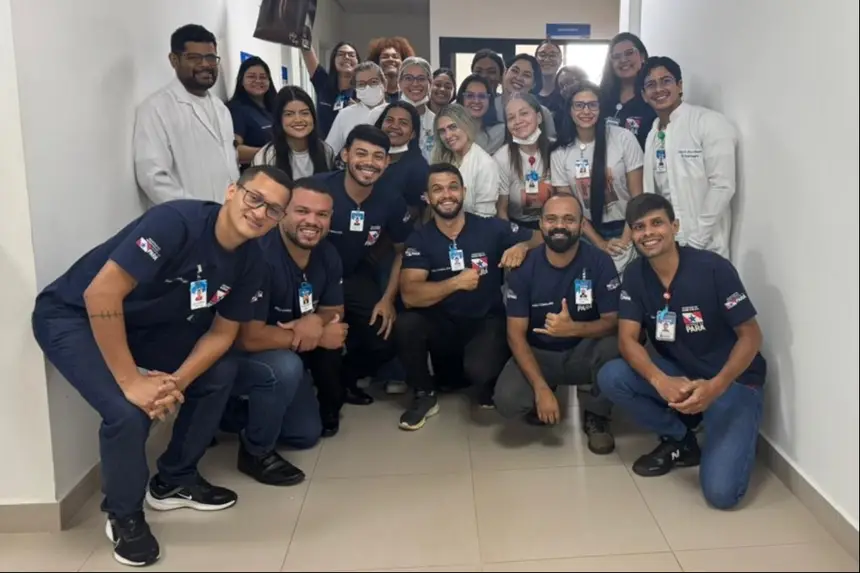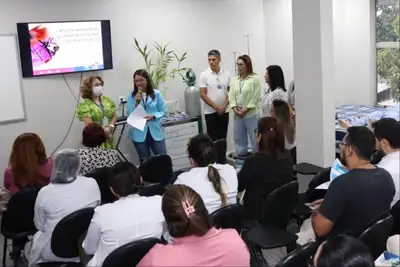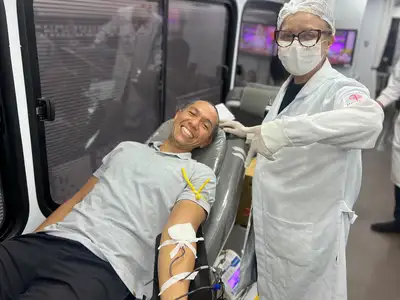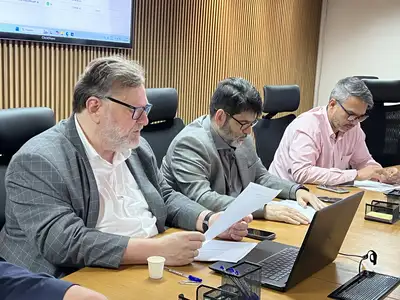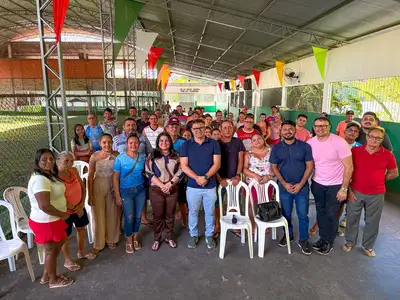Focusing on safety, ergonomics, and emotional intelligence, state health units conclude well-being week
Five days of programming brought reflections on ethics, mental health, and accident prevention, showing that safe environments generate more welcoming care for patients
The Internal Week for the Prevention of Work Accidents (Sipat), which integrated public health units of the Government of Pará in Belém, Marabá, and Tucuruí, came to an end this Friday (28), leaving a legacy of learning, reflection, and collective strengthening.
Throughout the program, held from November 24 to 28, essential themes for the care routine, such as occupational safety, emotional well-being, and ethical professional relationships were highlighted, reinforcing the commitment to safer work environments and even more qualified care for patients.
The activities took place at the Galileu State Public Hospital (HPEG) and the Metropolitan Polyclinic in Belém; at the Southeast Pará Regional Hospital – Dr. Geraldo Veloso (HRSP) and the Polyclinic/Natea of Carajás in Marabá; and at the Polyclinic/Natea of Tucuruí — all managed by the Institute of Social and Environmental Health of the Amazon (ISSAA), in partnership with the State Department of Public Health (Sespa).
Ergonomics: when the health of the worker becomes a priority
Among the highlights of the week, the lecture “Impact of Ergonomics on Occupational Health,” held on the 27th and given by physiotherapist Tyssia Albuquerque, encouraged participants to reflect on how they move, work, and relate at work.
“Ergonomics is not just about posture; it is about respecting the body and the limits of each professional. When we adjust the environment to the people, we reduce pain, prevent injuries, and increase quality of life and productivity, providing better care for patients,” emphasized the physiotherapist.
The units promoted practical dynamics, guidance, and workplace gymnastics, which had broad participation from the teams. The exercises reinforced the importance of healthy habits in the work routine, showing how the prevention of discomfort and injuries directly contributes to safer, faster, and excellent patient care.
Emotional intelligence
Another focus that received special attention in the program was mental health, with the lecture “Emotional Intelligence: how to improve relationships and mental health,” held on the 28th and given by psychologists from the units, under the coordination of psychologist Karina Zamprogna, human resources manager of ISSAA.
“When a professional learns to name what they feel, they gain one of the most powerful tools to face situations of pressure, conflict, and decision-making,” explained Karina, highlighting the importance of emotional management for the quality of care.
Artur Zanelli, a psychologist working at the Regional Hospital of Marabá, reinforced that emotional intelligence is essential for teams that deal daily with human suffering. “Caring for emotions is caring for technique. Emotionally balanced professionals respond better to stress and welcome patients with empathy,” he stated.
Ellenn Santos, a psychologist working at the Galileu Hospital, brought a sensitive perspective on the connection between mental well-being and organizational climate. “Healthy environments arise from healthy relationships. When we strengthen emotional intelligence, we also strengthen the bond between colleagues and trust with the patient,” she said.
The professionals from the units participated in mental exercises, interactive dynamics, and reflections that helped them recognize emotions, identify patterns, and understand limits in the work environment. The activities stimulated self-knowledge and reinforced emotional management as an essential tool to strengthen relationships, improve communication among teams, and qualify patient care.
SIPAT
This year, the Internal Week for the Prevention of Work Accidents highlights three central axes: mental health at work, ethics and respect in professional relationships, and strengthening patient safety practices. The goal is to reinforce the importance of safer, more welcoming, and integrity-oriented work environments — pillars that positively impact the reception of patients and companions of the Unified Health System (SUS).



